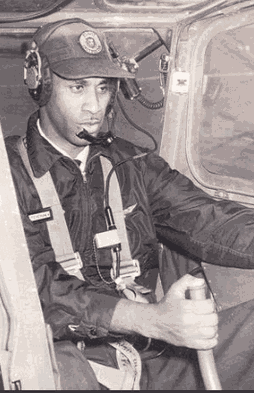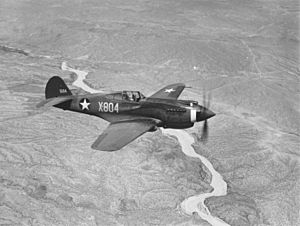Milton Crenchaw facts for kids
Quick facts for kids
Milton Crenchaw
|
|
|---|---|

Crenshaw in a WWII era photo
|
|
| Birth name | Milton Pitts Crenchaw |
| Born | January 13, 1919 Little Rock, Arkansas U.S. |
| Died | November 17, 2015 (aged 96) Atlanta, Georgia U.S. |
| Allegiance | United States of America |
| Service/ |
United States Army Air Force |
| Years of service | 1941-1972 |
| Unit | Tuskegee Army Air Field |
| Commands held | Flight instructor |
| Awards |
|
| Spouse(s) | Ruby (née Hockenhull |
| Relations | Children: Dolores, Countess and Milton |
Milton Pitts Crenchaw (born January 13, 1919 – died November 17, 2015) was an American pilot. He was part of the famous Tuskegee Airmen during World War II. He was also the first person from Arkansas to be trained by the government as a civilian pilot.
During the war, he worked as a flight instructor. He helped train many pilots. Milton Crenchaw was one of the first two main leaders of the training squadron. In 1998, he was honored and added to the Arkansas Aviation Hall of Fame. Milton Crenchaw was the grandson of a slave. He is known as the "father of black aviation in Arkansas." He helped break down racial barriers in the military.
Early Life and Family
Milton Crenchaw was born in Little Rock, Arkansas, in 1919. His parents were Reverend Joseph C. Crenchaw and Ethel Pitts Crenchaw. His father was a leader in the civil rights movement with the NAACP. Milton's grandfather had been a slave.
In 1937, Milton finished high school at Dunbar High School in Arkansas. He then went to Tuskegee Institute in 1939. There, he studied how to fix cars.
Milton Crenchaw married Ruby Hockenhull on December 22, 1942. They got married in Tuskegee, Alabama. They had three children together: Dolores, Countess, and Milton Jr.
Aviation Career
Milton Crenchaw went from being a college student to flying planes. He joined the Civilian Pilot Training Program (CPTP). This program was supported by the United States Army Air Corps. It was created because the U.S. needed more combat pilots. This was especially true after World War II started in Europe in 1939.
Milton passed his test to become a licensed flight instructor on December 8, 1941. This was just one day after the attack on Pearl Harbor. Soon after, he moved to the training program at Moton Field. This was the home base for the Tuskegee Airmen.
In 1942, Crenchaw became a Primary Flight Instructor. This was at Tuskegee Army Air Field in Tuskegee, Alabama. He was one of the first two main leaders under Chief Pilot Charles A. Anderson. Charles A. Anderson was the first African-American man to get a private pilot license in 1929.
Milton Crenchaw also helped start the first flight program at Philander Smith College. He taught pilots there from 1947 to 1953.
Crenchaw worked for the U.S. government for 40 years. He started in 1941 and retired in 1983. He first worked with the U.S. Army Air Corps. This later became the U.S. Air Force. Later in his career, he worked to ensure equal opportunities for everyone. He also worked as a race-relations officer at Fort Stewart in Georgia.
In 2015, United States Senator John Boozman from Arkansas honored Crenchaw. He said that Crenchaw "helped break the barriers that existed in the military." He called him a pioneer who "paved the way for integration in the United States Military." He also said Crenchaw "impacted generations of aviators."
Later Life and Legacy
Milton Crenchaw passed away on November 17, 2015. He was 96 years old. He was buried on December 1, 2015. His burial was at the Arkansas State Veterans Cemetery. A special ceremony was held at the state capital. Arkansas lawmakers and officials attended to honor his life. His family received special honors from the House and Senate. A picture of Crenchaw was shown at the capital for a week.
Awards and Honors
Milton Crenchaw received many awards for his important work:
- 1998: He was added to the Arkansas Aviation Hall of Fame.
- 2006: He received the Congressional Gold Medal as part of the Tuskegee Airmen.
- 2007: He was added to the Arkansas Black Hall of Fame.
- 2017: A technical wing of a high school in Little Rock was named after him.
See Also
- Executive Order 9981
- Military history of African Americans
- List of Tuskegee Airmen Cadet Pilot Graduation Classes
- List of Tuskegee Airmen
- The Tuskegee Airmen (movie)
 | Chris Smalls |
 | Fred Hampton |
 | Ralph Abernathy |


